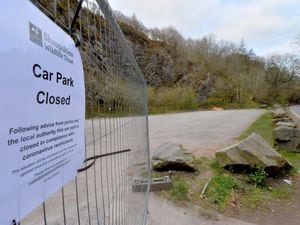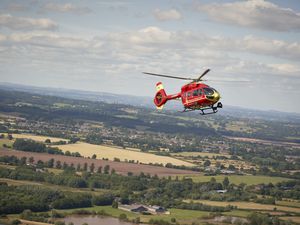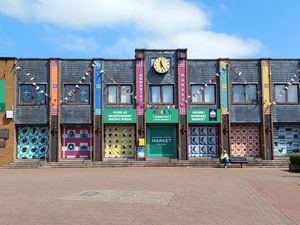Shropshire tourism industry looks to future after multi-million pound Covid-19 hit
As the tourist trade fights to survive the impact of the coronavirus crisis, businesses are focusing on the future beyond lockdown.

Mark Hooper, project lead at Visit Shropshire, which represents more than 150 businesses in the county, said that firms had been hit hard by the collapse of the tourism market, and that they had been concentrating on making sure people know where to get support to get through the crisis.
It comes as the chief executive of North Wales Tourism said the loss of visitors over the Easter Bank Holiday weekend had cost as much as £100 million in lost takings.
Jim Jones, the chief executive of North Wales Tourism, says many tourism businesses were telling them they may not survive the economic damage caused by the pandemic.
Spring and the Easter Bank Holiday are usually the start of a bumper period for the tourism trade, but instead of an influx of visitors many found themselves shut down with no bookings.
Mr Hooper said: “Obviously everyone has gone completely quiet because no-one can move around, so we are hugely impacted by that. Our industry is built on people travelling to us.”
He said a significant part of their role had been about making sure businesses know what they are entitled to, and telling them where to get it.
He said: “Visit Shropshire has turned into an advice line for people to ask what they are entitled to. The impact on businesses now is the day-to-day cash flow element.
“The grant scheme is great and I do not think it is something the country has seen before – but the hard question we get asked is how long will it go on for and no-one knows.
That is the scary thing for business, if you know it is six months you can prepare for that, if you know it is a year you prepare for that.”
As part of the efforts to help businesses Visit Shropshire is offering free temporary membership.
Mr Hooper said that the focus was now on promoting post-lockdown visits, in anticipation of a boom when restrictions are lifted.
Mr Hooper added: "We are putting in place plans for post-Covid-19 because obviously the world will turn a corner and go back to normal at some point and for Shropshire we need to make sure we are at the front of people's minds.
“One thing we are picking up from Visit England is there will be a huge increase in domestic tourism because people have been stuck inside the same four walls for a long time and we are trying to put post Covid-19 plans in place.”

North Wales is also counting the cost of the crisis with many businesses closed while restrictions remain in place.
Mr Jones said: “Tourism generates more than £3 billion a year of spending by visitors. About half of that comes in the main holiday season – it’s estimated the amount of income generated over the long Easter weekend is £100m.
“What’s causing particular hardship in our tourism sector across North Wales is that it’s come at the worst possible time.
“Many businesses haven’t generated any new cash flow since October and they committed to general maintenance and improvements over the winter using extended overdrafts and loans with the hope of a good Easter break to kick-start them into the season.”
Mr Jones said more support will be needed from government.
He said: “It’s not going to be enough. There are still a number of critical issues that need looking at, such as some banks are not helping businesses in this difficult time.
“One of North Wales Tourism Board Members was told, that because her business will not be generating any income in the next few months they were unable to support them
“Not getting enough cash flow into their businesses to help right now is the crux of the problem and will ultimately be make-or-break for many.
“We’ve heard from many businesses that even when they have closed the doors to visitors they still have huge overheads.
“For example, the Welsh Mountain Zoo still have to care for their animals. Anglesey Sea Zoo, who have a globally important British Sea Horse breeding and conservation programme, still need to cover the cost of keeping all the plant and filtering systems working.
Mr Jones said he is confident the industry will bounce back.
He said: "Our organisation is starting to think about helping North Wales be future-ready for when this is over.
“All the work that has gone into making North Wales the Adventure Capital of Europe over recent years hasn’t been wasted and will give us a good platform from which to rebuild. We are confident that people will come back when the time is right.
“But for now the message is loud and clear, stay home and stay safe and we hope to see you soon.”





